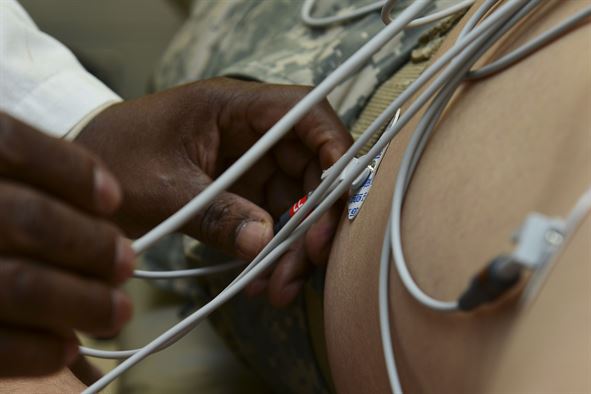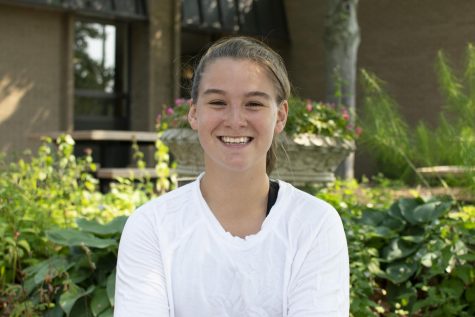Not missing a beat: heart screenings held

Photo by Photo used with the permission of http://www.jble.af.mil/News/Article-Display/Article/843664/
Students at the Screens for Teens event received an EKG test.
Heart screenings were at the school on March 14 during PE classes. The Max Schewitz Foundation funded this event to help protect young adults from the dangers of hidden heart issues.
“From first hand experience, with the heart, you never really know when your heart is healthy or not, it’s not like you feel it. Anytime you have the opportunity to take the test, to see and to make sure that your heart is working properly. Then I say get it, just to make sure, it can’t hurt,” Jack Sanborn, senior whose father and grandfather passed away from a heart condition, said.
The tests can detect heart abnormalities before tragedy strikes, according to Joan Hyatt, head nurse.
“Over the years, athletes in their high school drop dead at a basketball game, at a football game–and no one really knew why because they weren’t diagnosed with their heart abnormality beforehand. This is to help prevent young people from dying. It’s a great thing,” Hyatt said.
These EKGs save lives, according to Bessie Benrus, health aide.
“We have had two students [in the past] that were identified at high risk. They both ended up having to have surgery and they are both now one hundred percent fine. We saved their lives by having this EKG here at school. It’s truly amazing. Even if we only save two lives out of 4,000 kids, it is so worth it.” Benrus said.
This is the third year the school has offered EKGs through the Max Schewitz Foundation. The foundation’s namesake, Max Schewitz, was 20 years old when he died from a hidden heart condition. The foundation works to help prevent this same tragedy from happening again.
“As a parent, I have two high schoolers myself and they had the opportunity to do the same thing at their high school,” said Bo Vossel, principal. “The safety of your kids is one of the most important things to a parent and knowing that they’re healthy, it was a great opportunity for them, and it’s a great opportunity here for our students and their families.”
The opportunity to have these EKG is an important teaching tool, according to Vossel.
“Even for students who are healthy, finding out what is an EKG, what does it test, what does it not do, what would be some issues that it might detect. If you come up with a clean bill of health, what does that tell you about your heart? It doesn’t tell you everything. But it can tell you a lot. So I hope that people do start to become more informed about specifically what [the EKG] does and does not tell you about your health,” Vossel said.
Testing was $15 per student and accommodations were made for students without gym periods, according to Hyatt.
“It’s very inexpensive here at the school. You’re not paying the full price because it’s here at the school and this is a special event supported by the Max Schewitz Foundation,” Hyatt said. “It can’t do you any harm, and it could save your life.”

This is Marissa's first year on staff and second year in the journalism program. As a sophomore, Marissa likes to take long walks to the fridge and spends...
